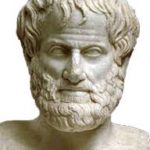by Andy
August 14, 2017
Long ago, Aristotle isolated the three requirements to effective oratorical persuasion.
- Ethos – character, credibility, goodwill.
- Pathos – empathy, emotion.
- Logos – logic, reasoned, facts.
This construct remains. We see it in novels, movies, TV shows, cable news, everywhere. Good storytelling, regardless of format, prepares the listener to pay attention, accept the premise, and believe the facts. Without speaker credibility and a pathway into an open mind, supporting facts can be easily dismissed as ‘fake news’ and the message falls on deaf ears – regardless of how important the message may be.
Back in the day, JFK promised to put a man on the moon within the decade – lunacy most believed. Elon Musk talks about interplanetary transport systems within 8-10 years, leveraging rockets nearly 40-stories tall! Jeff Bezos wants to settle the moon. Their well-established credibility and passionate storytelling is then paid off with logical details that make these outlandish visions seem quite plausible.
Best yet, Musk and Bezos define an opportunity that can rally employees and, more importantly, influence a target audience to believe only they can do it. This is not just about moon shots either as established categories can be overwhelmed too. Chevy Volt, Nissan Leaf, and Toyota Prius started the category. Tesla now owns it — based on a better product and effective, persuasive communications. It’s valuable too. Tesla only sold ~76,000 total units in 2016. Nissan sold ~1.5 million. Tesla’s market cap is $60 Billion dollars. Nissan? $42 Billion. Ethos, Pathos, Logos.
Sadly, today’s communications often sell spreadsheet analyses, not opportunity. They start with Logos, then (try to) back into Pathos and Ethos. You see it all the time. How may presentations – internal or external – have you watched that start and end with numbers, jargon, acronyms, and data points? You find yourself adding up numbers to make sure the data appear correct, rather than seeing them as critical proof points to a larger vision. When presented like this, numbers distract and the core message goes unappreciated.
Remember, numbers are impersonal, rational, ambivalent. They lack vision, imagination, opportunity. Don’t get me wrong, numbers drive everything! But numbers without credibility or passion will just lay there.
Ethos, pathos, logos – in that order! From tweets to keynote speeches, blogs to white papers, this construct works as it was taught 2,400 years ago.





As a member of the “Corporate World”, I find that most presenters have 2 of the 3 requirements, but either forget or just don’t appreciate the value, of all three. Thanks for this reminder to us all!
History shows Aristotle was right. Musk and Bezos are current masters of the form. And Masters they are. They lead. We follow. The markets comply. Electric cars. Immediate delivery of anything you need. Of course we’ll travel to Mars and colonize the Moon. Musk and Bezos tell us so. And we not only believe them. We expect — we want — it to come true. Masters of Aristotle’s teaching. Their success is our success. And ours is their’s. They lead. We follow.
As somone who does a lot of public speaking and “storytelling” I will give two brief perspectives:
1) Novice scientists (and those in training) are sometimes hesitant to think about telling a “story” in science -because they wrongly associate the word story with fiction. Throughout the existence of societies and culture (pre-written tradition) stories have been used to explain things and that is precisely why scientists need to think about the “story” (explanation of results in a sequence that will best describe the rationale and meaning of each step).
2) I find the classic storylines described by Ffion Lindsay very helpful. It is a free pdf download – I will let Andy decide if he wants to post the link here. but super easy to find by google.